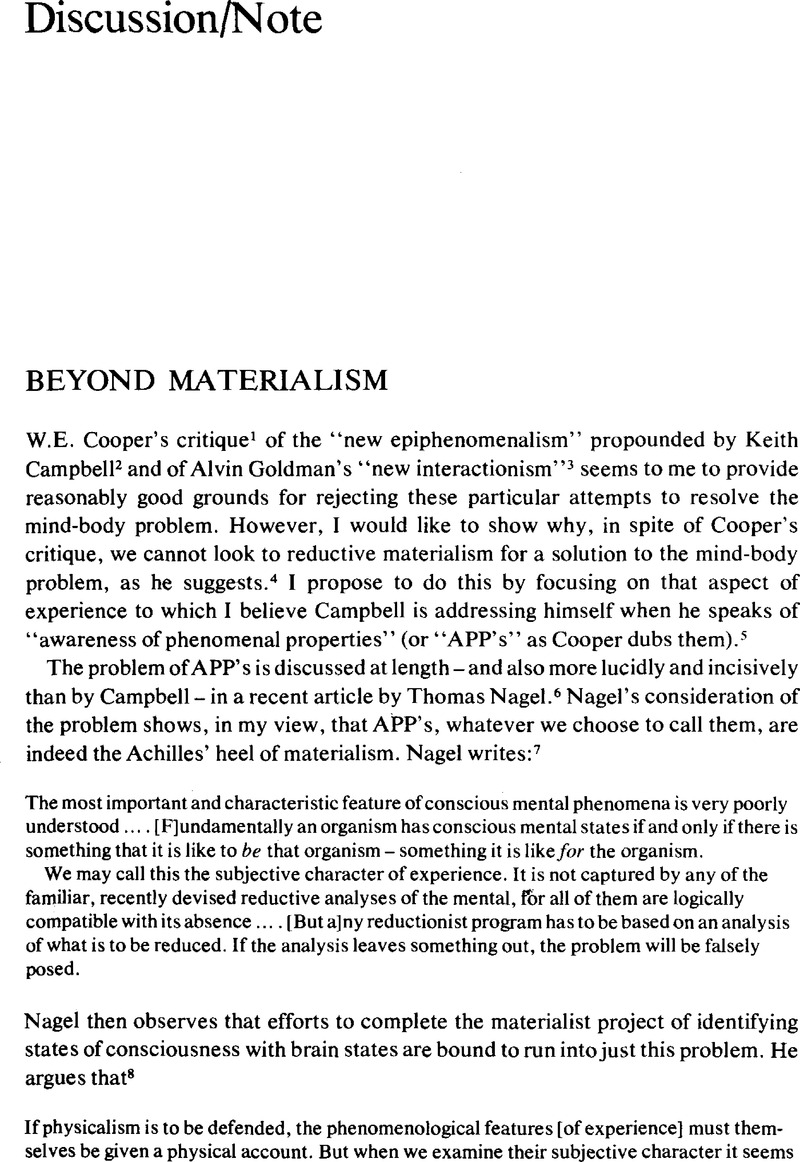No CrossRef data available.
Article contents
Beyond Materialism
Published online by Cambridge University Press: 05 May 2010
Abstract

- Type
- Discussion/Note
- Information
- Dialogue: Canadian Philosophical Review / Revue canadienne de philosophie , Volume 17 , Issue 2 , June 1978 , pp. 367 - 370
- Copyright
- Copyright © Canadian Philosophical Association 1978
References
1 Cooper, W.E., “Beyond Materialism and Back Again,” Dialogue, XVI, No. 2 (June 1977), pp. 191–206CrossRefGoogle Scholar.
2 Campbell, Keith, Body and Mind (London: Macmillan, 1970)CrossRefGoogle Scholar, Chapter 6.
3 Goldman, Alvin, A Theory of Human Action (Englewood Cliffs, N.J.: Prentice-Hall, 1970)Google Scholar, Chapter 5, Section 5.
4 Cooper, 192.
5 Ibid., 197.
6 Nagel, Thomas, “What Is It Like to Be a Bat?” Philosophical Review, 83, No. 4 (October 1974). 435–450CrossRefGoogle Scholar.
7 Ibid., 436, 437 (Nagel's italics).
8 Ibid., 437.
9 Ibid., 444–445 (Nagel's italics).
10 Ibid., 448.
11 Cooper, 206 (my italics).
12 Ibid.
13 Ibid. Actually, what Cooper calls “the experience of visiting Rome” is a complex of separate experiences in the sense relevant to our discussion here – i.e. sights, sounds, smells, tastes, etc. – each of which has its own irreducible phenomenal properties. Cooper's choice of this example is infelicitous.




